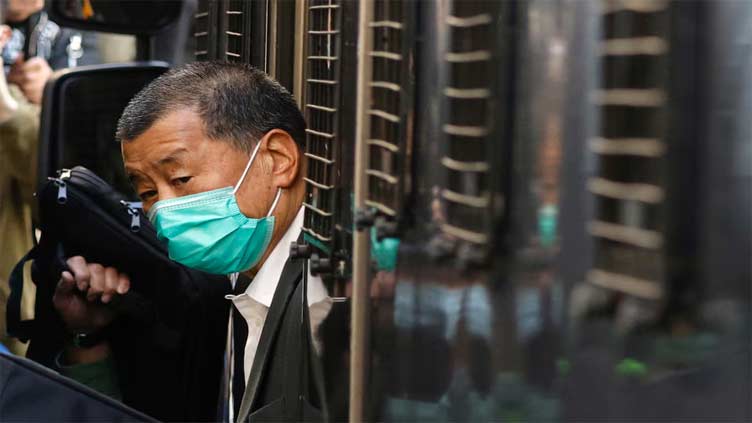Hong Kong court dismisses bid by media tycoon Jimmy Lai to overturn conviction

World
Lai has been held in solitary confinement for more than three years since 2020
HONG KONG (Reuters) - Hong Kong's top court on Monday unanimously dismissed the bid to overturn the convictions of media tycoon Jimmy Lai and six other pro-democracy campaigners for an unauthorised assembly in 2019.
Lai, 76, the founder of the pro-democracy newspaper Apple Daily, and six others including veteran democrat Martin Lee had been found guilty of organising and participating in an unauthorised assembly in August 2019 during months-long pro-democracy protests in the China-ruled city.
While a lower court had overturned their conviction for organising the unauthorised assembly, but their conviction for taking part in an unauthorised procession was upheld.
Their appeal centred on whether the conviction was proportionate to fundamental human rights protections, a principle set down in two non-binding decisions of Britain’s Supreme Court known as "operational proportionality".
Chief Justice Andrew Cheung and Judge Roberto Ribeiro wrote in the main judgement that the two UK decisions should not be followed in Hong Kong, as there's differences between the legal frameworks for human rights challenges in Hong Kong and the UK.
David Neuberger, a former head of Britain's Supreme Court, was one of the five judges on the Court of Final Appeal (CFA) who heard the case, adding to the debate over whether foreign judges should continue to sit on the city's highest court amid a national security crackdown.
The judgment came two months after the resignations of two British judges from Hong Kong's Court of Final Appeal (CFA), Lawrence Collins and Jonathan Sumption. Sumption said Hong Kong was becoming a totalitarian state and the city's rule of law had been "profoundly compromised".
Neuberger told Reuters in mid-June he would remain on Hong Kong's highest court "to support the rule of law in Hong Kong, as best I can".
Neuberger said he agree with the main judgement, adding the "issue has been fully and impressively considered" and "gives important guidance as to the proper approach to what has been called “operational proportionality”.
Neuberger added the constitutional differences in Hong Kong and the UK "do not mandate a different approach when considering whether a restriction on the right of assembly is proportionate", but they "do require a different approach if the court concludes that the restriction is or may not be proportionate".
Beijing imposed a national security law in 2020 after months of pro-democracy protests in 2019 and the Hong Kong legislative council passed a new national security law, also known as Article 23 in March.
For organising and taking part in an unauthorised assembly in 2019, Lai and three former lawmakers Lee Cheuk-yan, 67, “Long Hair” Leung Kwok-hung, 68 and Cyd Ho, 70 were jailed between eight and 18 months. They received a reduced sentence of 3 to 6 months after their conviction for organising was quashed.
Martin Lee, 86, a founding chairman of Hong Kong's Democratic Party, barrister Margaret Ng, 76 and veteran pro-democracy politician Albert Ho, 72 were given suspended sentences.
“We just want to take the occasion to thank our legal team and all the people who have been supporting us,” Ng told the media outside the court.
Lai has been held in solitary confinement for more than three years since December 2020. He is now facing a separate national security trial and serving a sentence of five years and nine months after being convicted of violating a lease contract for his now shuttered newspaper's headquarters.
According to the Security Bureau, 301 people were arrested over acts or activities that endanger national security. Among them, 176 persons and 5 companies were charged.


